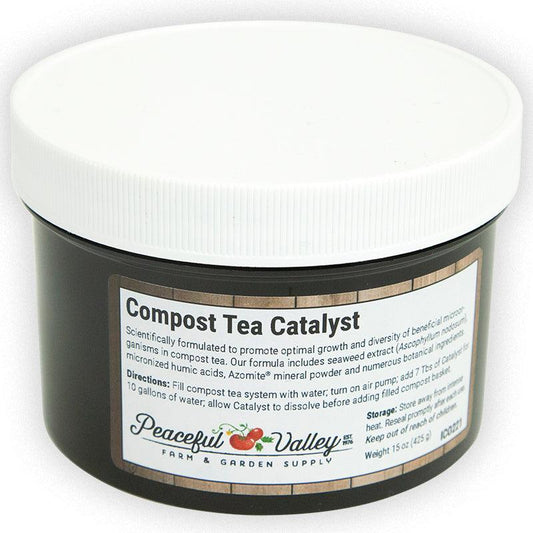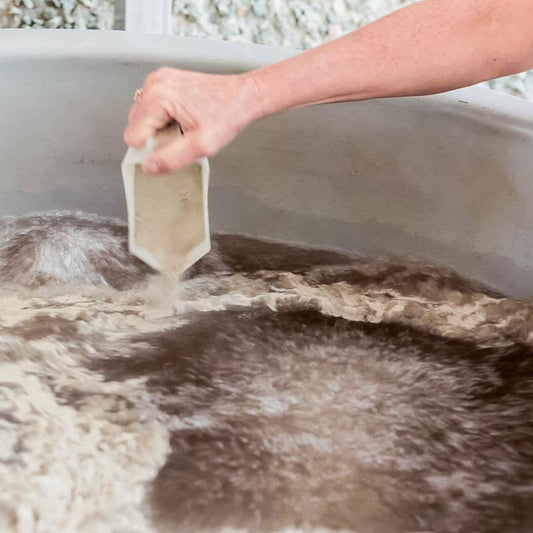Compost tea is an easy and effective way to enhance soil health and boost plant growth naturally. By extracting nutrients and beneficial microbes from compost, this liquid fertilizer provides your garden with an extra dose of vitality. Here’s a simple guide to making your own compost tea at home.
What is Compost Tea?
Compost tea is a nutrient-rich liquid made by steeping compost in water. This process extracts soluble nutrients and beneficial microorganisms, creating a powerful elixir for your plants. It can be used as a soil drench or a foliar spray to improve plant health and soil fertility.
For more gardening tips, visit our Composting 101 guide for in-depth information on creating nutrient-rich compost.
Essential Materials
- High-quality compost: Use organic compost that is rich in nutrients and free of contaminants.
- Aeration equipment: An aquarium pump and air stones work well to oxygenate the tea.
- Bucket or container: A 5-gallon bucket is ideal for brewing compost tea.
- Water: Dechlorinated water is best to protect beneficial microbes.
- Optional additives: Unsulfured molasses or kelp meal can boost microbial activity.
Step-by-Step Instructions
1. Prepare Your Water
Fill your bucket with dechlorinated water. If you’re using tap water, let it sit for 24 hours to allow chlorine to dissipate. Chlorine can harm beneficial microbes, so this step is crucial.
2. Add Compost
Place 1 to 2 cups of compost into a porous bag or directly into the water. If using a bag, tie it securely and submerge it in the bucket.
3. Oxygenate the Mixture
Set up your aquarium pump and air stones to aerate the water. Proper aeration promotes the growth of beneficial aerobic microbes while preventing harmful anaerobic bacteria from developing.
4. Add Optional Ingredients
If desired, mix in 1 to 2 tablespoons of unsulfured molasses or a handful of kelp meal to feed the microbes and enhance the nutrient profile of your tea.
5. Brew the Tea
Let the mixture steep for 24 to 48 hours, keeping the pump running continuously. Stir the tea occasionally to ensure even distribution of nutrients and microbes.
6. Strain and Use
Once brewing is complete, strain the liquid through a fine mesh or cheesecloth to remove solids. Use the tea immediately as a soil drench or foliar spray for best results.
Tips for Success
- Use high-quality, mature compost to ensure a nutrient-rich tea.
- Avoid over-brewing; compost tea should not smell foul. If it does, discard it and start again.
- Apply compost tea early in the morning or late in the afternoon to prevent leaf burn.
Benefits of Compost Tea
- Improves soil structure and nutrient availability.
- Enhances plant resilience against diseases and pests.
- Boosts microbial diversity in the soil, promoting overall ecosystem health.
Conclusion
Compost tea is a simple, natural way to supercharge your garden. With just a few ingredients and a bit of time, you can create a powerful fertilizer that supports healthy, thriving plants. Start brewing your own compost tea today and experience the difference it makes!
Compost Tea Resources
Enhance your garden's health with compost tea! Explore these resources to learn how to brew, understand, and utilize compost tea effectively:
-
How to Make Compost Tea – A Simple Recipe
Learn the basics of brewing compost tea, a nutrient-rich liquid that promotes soil health and plant growth. -
Compost Tea Interactive Guide
Explore an interactive guide that offers step-by-step instructions and tips for brewing compost tea. -
How to Make Compost Tea (Video)
Watch a detailed video demonstrating the process of brewing compost tea at home. -
Compost Tea Definitions
Understand the terminology and concepts related to compost tea to better grasp its benefits and applications. -
Compost Tea Brewers
Browse our selection of compost tea brewing equipment to find the right tools for your gardening needs. -
Custom Compost Tea Recipe Builder
Design your own compost tea recipe tailored to your garden’s specific needs with this interactive tool.
Resource Area: From Compost Pile to Liquid Gold
Understand how quality compost supports effective compost tea:
- How to Make Compost Tea for Your Plants – Use high-quality compost to brew effective tea.





8 comments
Chlorine is placed in municipal water supplies to kill micro-organisms. Micro-organisms are the single biggest reason that people make compost tea. Without the micro-organisms, you got nothing. Therefore, it is VERY important to remove the chlorine/chloramine from the water. I prefer a filter, specially designed for this purpose. Hope this helps… :-)
For chloramine add molasses or vitamin c to the water couple of hours before adding compost, guano, ewc etc.
Not a chemist but I don’t think Dechlorinating the water helps as much as one might think. In Arlington, Va—and probably in other locals in the U.S., they also add chloramine (—mime?) which does not flash off into the air, so the problem remains. Pretty sure that’s right. Thanks for the great videos !